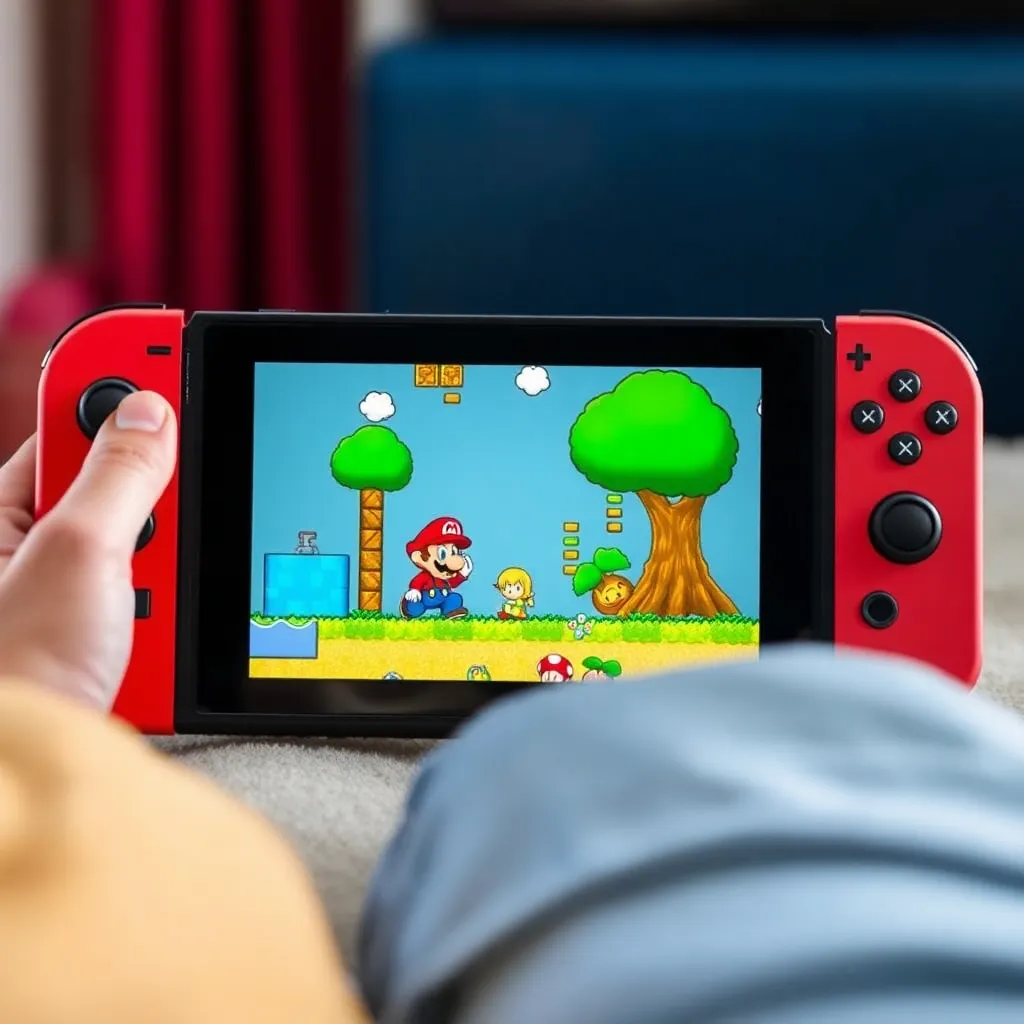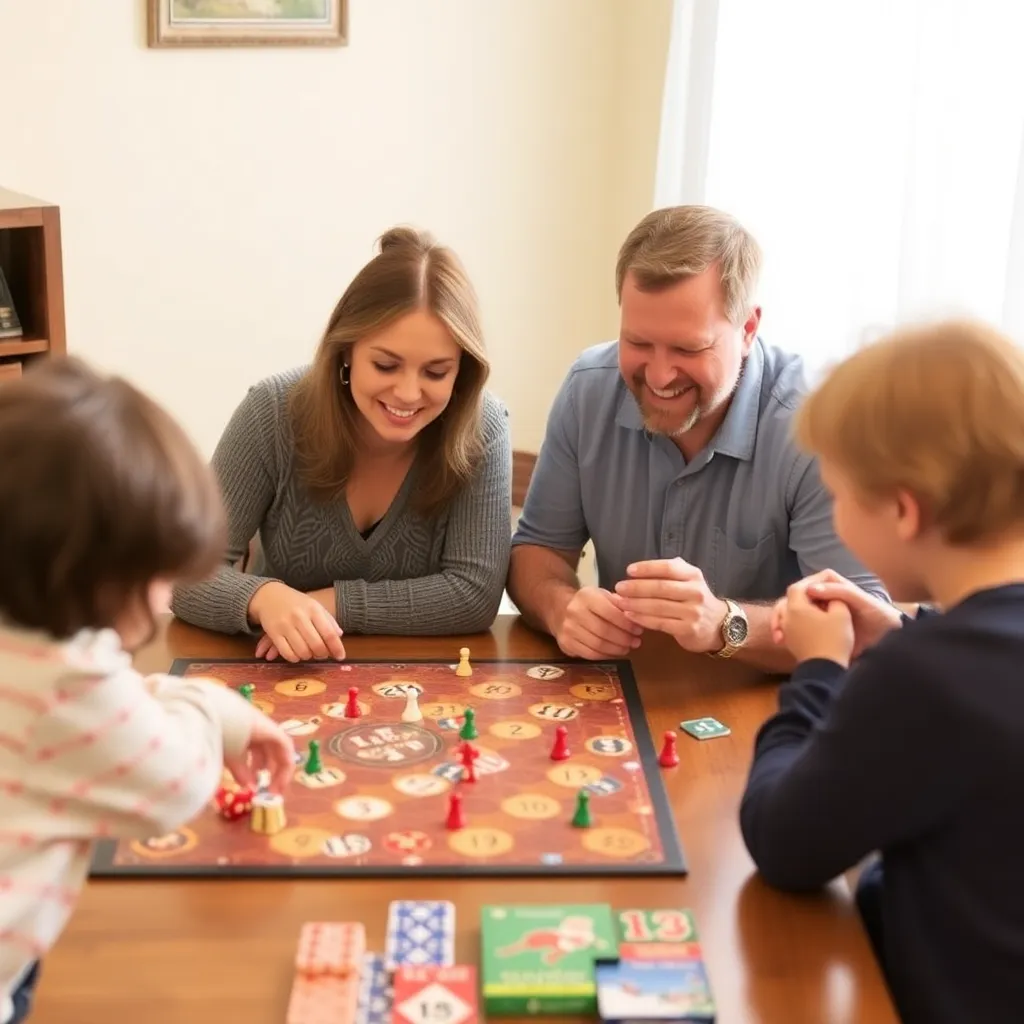Answer | When parenting is such a challenge on a daily basis, from deciding what to do with a child’s education and finding ways of completing various household chores, problem-solving becomes the way of life. Much of parenting requires thinking quickly, weighing decisions, and having the ability to look at things from different angles. Well, as it turns out, there’s a fun and great way to hone such skills-strategy games.
Strategy games have long been known to stimulate the thinking of a person who seeks critical information, improving their cognitive functions for years. Strategy games provide the brain with a mental workout through the usage of gameplay that reflects planning and adaptation toward creative solutions in response to real or imaginary scenarios and such performance can translate outside the gameplay itself to real life in problem-solving. In practical terms, such games prove an exciting means to augment the ability of parents who are constantly juggling different priorities and decision-making abilities.
In the article that follows, we’ll see how strategy games are good for a parent’s developing thinking skills, why strategy games in particular work, and what kinds of games are best used for this kind of activity?
Why Strategy Games Are Effective at Improving Problem-Solving Skills
However, before jumping into the actual games, it is necessary to have a sense of how strategy games work to enhance problem-solving skills in a player. Most of the games put people in very complex situations, where thought and planning as well as deliberate decision-making are demanded. Here are a few key ways in which strategy games help instill problem-solving capabilities:
1. Critical Thinking
Strategy games obligate the player to assess conditions critically weigh the pros and cons of every action, and think through the potential outcomes. Whether it is chess, in which the players have to think ahead of an opponent’s moves, or Settlers of Catan, in which the players have to plan their next steps in a relatively long term, critical thinking is always at the heart of successful gameplay. To parents, the same skill will help them make better decisions in real life—whether it’s handling a situation of conflict or just finding ways to coordinate family schedules and solving problems at home.
2. Adaptability
Life with children is an adventure with surprises. So are strategy games. The pandemic requires collaboration to win by saving the world from disease outbreaks, whereas XCOM has ever-changing alien threats, thus requiring constant adaptation. The strategy will require constant adjustment so that it accommodates the shocks of the game. This fluid thinking is one very important asset in parenting: plans get reversed on a dime, and problem-solving isn’t infrequently a matter of making things up as they go along.
3. Planning and Forethought
Strategy games generally force players to think of some moves ahead of the present action in terms of its impact on the outcome of a game. Chess, for example, encourages players who think of several moves in advance. Parents must think ahead as well: saving for college, planning vacations, and, more importantly, choosing diets and lifestyles for their kids.
4. Stress Management
The most common theme in strategy games refers to surviving extremely stressful conditions. One of the most significant examples is being able to achieve several goals at the same time, such as economic buildup and fending off attacks when playing Civilization or StarCraft. For instance, when the stress level becomes high, one has to keep a cool head and continue to search for what is appropriate to do to win the game. This will help the parents to have better control over their ability to handle pressure related to stress, to be calm under extreme conditions, and to find thoughtful answers even to chaotic situations.
Read This Additional If You Are Parents: Which Board Games Can Teach Parents the Art of Patience? 8 Unique Games
Strategy Games To Help A Parent Develop Problem-Solving Skills
Now that we have discussed the advantages of strategy games, it’s time to review some specific games that are particularly helpful in developing problem-solving skills. These games are not only for fun but also help parents practice and perfect their critical thinking skills.
1. Strategies Of Chess
Chess may well be the only ultimate strategy game that has been played for thousands of years as a developing activity for the mind. It indeed demands advanced planning for several steps ahead and giving thought to what the opponent might do next. Chess enables the parents to seed the virtues in their children of patience, long-term plans, and adaptation to change.
Playing chess regularly would train parents to have the type of forward-thinking and strategic abilities required to solve many complicated problems in everyday life-for instance, in managing the finances of a family, finding solutions to children’s conflicts, or planning for future needs. Additionally, it teaches carefulness and measured approaches to challenges in problem-solving.
2. Settlers of Catan
Settlers of Catan is a game of resource management where players must build settlements, trade resources, and expand their territories. Essentially, the game mixes short-term gains with long-term strategies, requiring players to carefully think about when to trade resources, when to expand, and how to engage with other players to secure the resources they need.
For parents, Catan presents an excellent opportunity to hone decision-making skills in pressured situations. The game can teach players how to manage a limited amount of means and how to plan accordingly. In addition, it can coach individuals on the art of negotiating with others—important problem-solving skills in everyday parenting. Whether the question is how to distribute time between work and family or how to manage the house budget, the lessons learned in Catan can come directly into play.
3. Pandemic
In the Pandemic, players cooperate as they try to prevent the emergence of deadly disease outbreaks around the world. In this cooperative game, the players need to consult each other to win; as players, each with unique abilities and playing different roles, will need to think collectively to contain the outbreaks, produce a cure, and then avoid chaos from coming down upon the world.
For parents, of course, the Pandemic is an excellent way to practice teamwork, communication, and collaborative problem-solving. It teaches that even more than dealing with things, there’s always a need to work together to find solutions, something many parents have discovered in family life, where far too many problems need to be solved by the family. This game also gives plenty of room for adaptability, since the player has to reassess strategies constantly in response to new outbreaks or crises—just like what happens in real-life situations.
4. Ticket to Ride
Ticket to Ride is one of those building games that see you get that train route across the country, and the fight is against other players. The mechanics of the game are a straightforward affair, but strategy resides in planning routes, resource management, and anticipating other players. So rewarding the kind of players who can think ahead and be patient enough to shift tactics when things go wrong.
For parents, there is the opportunity in Ticket to Ride to test strategic planning in a fun, low-stakes environment. The activity encourages long-term thinking with careful planning of routes in order to maximize points and minimize the waste of resources in available tokens. This type of thinking is directly applied to parenting, where an important aspect of planning can be anything from how a family will organize a vacation to school schedules and long-term goals.
5. XCOM: The Board Game
Those in the know about the popular video game series will recognize that XCOM: The Board Game is built around cooperative play for strategy, where players have to defend Earth from an alien invasion. Each player takes on a specific role Commander or Chief Scientist-and is responsible for coordinating the other team members to manage resources, conduct research, and fend off attacks.
XCOM is an excellent game for parents: it teaches how to remain cool under pressure and how to think on the go in situations that are truly crunch time. Cooperative in itself, the game teaches teamwork, communication, and flexibility essential qualities in solving issues as a family. Parents playing XCOM will learn better ways in which they will be able to cope with stressful conditions and make quick and knowledgeable decisions.
How Strategy Games Translate to Real-Life Parenting
Strategy games can be a lot of fun, but more importantly, the real utility in life comes in terms of helping to build parental skills when facing real-life challenges. Skills learned through these games may include problem-solving, critical thinking, planning, and adaptability all important skills for good parenting.
1. Everyday Challenge Management
Parents are forever faced with dilemmas that present challenges to their quick thinking and innovative solution provision. Whether it is the resolution of a children’s dispute running a tight schedule or how to stretch the family budget, these dilemmas necessitate the same strategy thought that strategy games promote. Ability to Assess a Situation, Consider Options, and Observe the Best Course of Action: regular play of strategy games can hone the ability of parents to assess a situation, consider several options, and establish the best course of action.
2. Effective Communication
One of the common requirements in most strategy games, especially cooperative ones like Pandemic or XCOM, is effective communication. This skill will end up being directly transposed into the parenting realm because effective communication is the answer to solving problems between a spouse, when deciding household tasks, or in one’s case, how to diffuse a situation with a child. Perhaps it could be coming out of an easy resolution to a disagreement with a child or perhaps coming out of a better understanding and discussion with a partner on household chores, the ability to communicate learned from those games will make the weighty conversations easier to handle in parenting.
3. Development of Patience and Resilience
Problem-solving is not only about solving the problem properly but also about patience and calmness when things do not happen as one has planned. Strategy games teach parents how to handle such situations by keeping calm, even in Chess when the move does not go their way, or when an event occurs out of their expectation in Catan. Such resilience is important for parents since most often, a good parent must adjust and remain patient when plans are affected or when challenges arise without warning.
Conclusion
Strategy games are much more than just entertainment; they are a veritable learning platform where the creativity and critical thinking skills of parents can be honed. Chess, Settlers of Catan, Pandemic, and XCOM not only require players to think critically and plan but also show adaptability-abilities that prove handy when facing complex, real-life problems.
Introducing strategy games within their agenda can make parents more effective at handling daily issues with calm, patience, and creativity. Whether playing with friends and family or alone, these games may enhance the ability to solve real-life problems, keeping up with the shifting landscape of parenthood.

